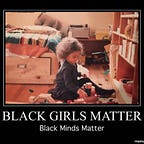In Which A Religious Text Speaks To Scientific Culture
As we discuss the challenges of equity, equality, inclusion and diversity in the physics community, I think a story from the Jewish Talmud is instructive. The Talmud is a collection of Rabbinical commentaries and reinterpretations of Torah stories that along with the Midrash are often known as Oral Torah.
In the Babylonian Talmud Tractate Soah, there is a story about the Jewish exodus from Egypt. According to Rabbi Judah, the tribes of Jews were at first unwilling to enter the sea which lay between them and freedom. Then one person, Nachshon ben Amminadab, descended into the sea though he could not swim. In the Talmudic telling, Nachshon cried out to God for help: “Save me O God, for the waters are come in unto my soul. I sink in deep mire, where there is no standing etc. Let not the waterflood overwhelm me, neither let the deep swallow me up.” At the same time, Moses, their supposed leader, was engaging in prayer. God challenged this choice: “My beloved ones are drowning in the sea and thou prolongest prayer before Me!” And Moses responded, “Lord of the Universe, what is there in my power to do?” To which God replied, “Speak unto the children of Israel that they go forward. And lift thou up thy rod, and stretch out thy hand.”
It could be easy for atheists to write this story off as only being relevant to people who believe in a supernatural God. Indeed, some who believe in a supernatural God or a literal interpretation of the Torah/Old Testament might take this story to be a retelling of real history. But as my Rabbi pointed out to me, the Rabbis whose words fill the Talmud took some liberties in editing and embellishing Torah stories. To a reconstructionist Jew like me, this story is not about that kind of God or supernatural beings. It is about choices. It is about what we do when freedom is on the line, change is necessary, and the next step is scary and unprecedented.
It is about whether we let others drown in sorrow and pain because we are afraid to do anything but sit around trying to think of an answer, hoping that someone else in a position of power (“God”) will just give it to us.
It is about the responsibility to lead.
It is also about the power of one. Though Nachshon risks drowning, Nachshon also prompts action which ultimately sets into motion a whole people walking to freedom.
Did it literally happen? I don’t think so (although I’m not omniscient, so I guess I will never know for sure). Does it matter if it literally happened? No, not really. We can think of many examples in history of real people who risked their lives, livelihood and comfort in ways that ultimately brought their immediate and national community to a better place. Think Harriet Tubman, Sojourner Truth and Sylvia Rivera. Think the Black Lives Matter activists like my mom who have been tear gassed, shot at with rubber bullets and threatened with criminalization as they organize for justice in the streets.
What can the physics and astronomy communities learn from this story and these examples?
- “I am afraid” is not a good excuse to avoid standing up for what is right.
- “Talking and thinking about it” can only go on for so long. At some point action is necessary.
- One person can make a difference, even if that one person ultimately needs help.
- The power to make Change is in our hands, not simply those who seem more powerful than we are.
- We have a choice about who we are in the world and to those who need a passageway to freedom and justice.
Professors can remember this: a. the next time they are on a hiring committee and not thinking about the needs of the most marginalized undergraduates in their department; b. the next time they are on a graduate admissions or hiring committee and only selecting candidates who reflect traditional narratives about what potential looks like.
I hope junior researchers and students remember this the next time they let someone get away with saying or doing something racist/homophobic/heterosexist/ableist/otherwise prejudiced or discriminatory in front of them.
I hope people who benefit from the white supremacist heteropatriarchal structure of our society (or who have somehow survived it by keeping their head down and not helping others) can take to heart that they have choices: they can be the sea, they can be a Moses lost in meditation, or they can be the daughter of the evil Pharaoh that rescues Moses from certain death and ultimately joins him in the exodus to freedom.
We help create the world we live in with our choices.
What will you do when you see someone who is drowning?
Endnote: I am grateful that the Jewish reconstructionist Kol Haneshama: Daily Prayer Book quotes this tractate, so as I have done my daily prayers, I have seen it over and over again. I am also grateful to my Rabbi whose writing and speaking is always thought provoking. I wish it was safe for me to reveal publicly which congregation I attend here and share some of her writing. Unfortunately, I receive enough anti-Jewish hate mail to believe it is not. I also want to offer my appreciation to the Mennonites I spent time with in Canada. Their principles encouraged me to spend more time thinking about how I wanted to manifest my Jewish identity in the world.
